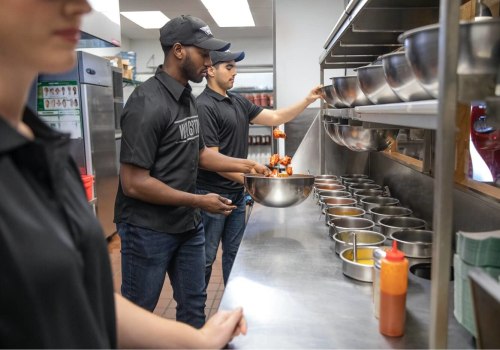Working in the food service industry can be a great opportunity to refine your talents and expand your skill set. It is a growing sector, with 1.7 million employees, many of whom are teenagers in their first job. However, due to high turnover, it can be difficult to advance your career in this field. Fortunately, there are many options for employees to break out of this cycle and work their way up. The best way to advance your career is to use every opportunity to refine your talents and expand your skill set.
Many companies offer training throughout the year or will even pay for classes or certifications that help you grow professionally. Additionally, it is important to listen to employees and give them a sense of participation in the business. This will make them more likely to stay and feel empowered to do their best work. It is also important to recognize the signs of exhaustion and burnout among employees. According to a Gallup survey, 23% of workers feel exhausted too often or always, which can be harmful to employee health in both the short and long term.
Managers should be aware of this problem and take steps to prevent it. At the same time, don't forget that working in the food service industry offers great opportunities for employees, which are even more valuable if restaurants focus on learning and development. If companies are smart enough to turn a great employee experience into their USP, it will be easier for them to attract and retain staff and, even better, they will also improve the experience they offer to customers. The job description of the manager of a fast food establishment could go on and on. Recruit, hire, train and monitor the performance of all restaurant employees. They maintain a relationship with the larger company, if they are part of a franchise.
They wear a lot of hats while doing their daily tasks. Because most restaurants are small, opportunities for promotion to management levels are limited. However, many employers in the service industry offer opportunities for hourly employees to develop their careers by participating in practical training provided by the company. In addition, many baristas also prepare some foods, such as heating breakfast sandwiches or pressing paninis. Working on yourself is just as important as working on company operations because everything you do affects some aspect of the restaurant, from the quality of the food to the environment and employee behavior. The Pew Research Center reports that 71% of employees with a non-farm payroll are employed in the service industry. Part of that activity can be quite extreme: reorganizing furniture to accommodate a large group, storing supplies to get out of the way, and getting them ready before the lunch crowd demands service.
The assistant manager is in the trenches of the company's food preparation, customer service and employee management areas. Even if a food service job is most likely not for life, that doesn't mean the experience isn't valuable. Many employers offer opportunities for hourly employees to develop their careers by participating in practical training provided by the company. In addition, many baristas also prepare some foods, such as heating breakfast sandwiches or pressing paninis. However, a job at a quick-service restaurant or establishment is often considered a short-term opportunity rather than something long-term. There are no specific educational requirements for this job; however, many employers offer opportunities for hourly employees to develop their careers by participating in practical training provided by the company. The McDonald's restaurant management curriculum has been recognized by the American Council on Education (ACE) and can cause those who complete it up to 46 college credits to earn a two or four degree years.
Working on yourself is just as important as working on company operations because everything you do affects some aspect of the restaurant. In conclusion, working in the food service industry can be an excellent opportunity for career advancement if you take advantage of every opportunity available. Companies should focus on learning and development and create an environment where employees feel heard and empowered. Managers should also be aware of signs of exhaustion and burnout among employees and take steps to prevent it.









